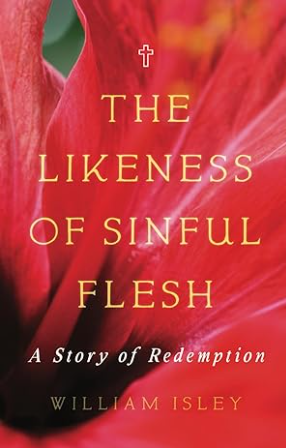Friday my good friend Rodrigo Chavarría died. A pleasant day out with my wife was suddenly changed as I checked our telephone messages. Rodrigo was dead a friend’s recorded voice told us. My wife wept, indeed howled, with grief. I remained silent. Later I wept, but the feeling throughout the day, and still this morning, is one of weight and numbness.
When my father died eight years ago, we were prepared for it. He had been slipping physically for a long time, and God in his mercy had prepared his soul for eternity. Yes, there was that awful moment when the nurse said, “I think he is going,” and a life ended, but Rodrigo’s death is different. He died at 55 of a heart attack. We were not prepared.
I told my wife it felt like the numbness we experience after the shock of a car accident. Witter Bynner’s poem “Death of a Friend” captures my sensation of going through the motions of living.
I had not known, in friendly life attached,
That death cleaves suddenly yet leaves two legs
That both still bear their weight, two legs still matched
And walking still among the ashen dregs.
I had not known that the body bore so much,
That so bereaved it still would walk and thrive:
I had not known that, with no sense of touch,
An individual could stay alive.[1]
It may be that this numbness is a blessing, since the shock is too much for us to bear. I am able to grasp partially Mark Twain’s reaction to receiving word of his daughter’s death. “The intellect is stunned by the shock and but gropingly gathers the meaning of the words. The power to realize their full import is mercifully wanting. The mind has a dim sense of vast lost—that is all.”[2]
The soul, a better word than Twain’s “mind,” is enfleshed. Our soul’s grief affects the body, and the body in turn affects the soul. We share with the higher animals the physical impact of grief, but our tragedy is to experience loss much more deeply and longer than theirs. Our world has fallen apart. Moffat describes reflections on the first shock of death as “a vision of a cosmos devoid of meaning. It is the world that has died, not the beloved.”[3]
The death of one we love is our death too. A life is gone to which we were united. We are torn. A part of us has died, and yet we live and limp through life. In a way from which we are mercifully unaware for most of our life, we experience in the death of a friend the truth of John Donne’s “No man is an island entire of itself; … any man’s death diminishes me, because I am involved in mankind. And therefore never send to know for whom the bell tolls; it tolls for thee.”[4]
Our body’s continued need for food and rest seems to mock our grief. That I can even write this post seems wrong. How can my mind coolly analyze itself at a time like this? Why am I no longer grieving? Worse yet, pleasures seem to intrude on our mourning and make us feel guilty. How can I laugh rather than weep? Do I not care enough for my friend, for his family?
To our age all of this emotion seems overdone. “Of course, be a little sad. Cry a bit, but don’t carry on so,” it babbles. Yet ours is a superficial age that trivializes death, repeating mantra like false platitudes such as “death is a part of life.” We do not feel the full depth of death’s tragedy. We are not strong enough to weep inconsolably like Rachel did for her lost children (Jeremiah 31:15) or lament like David the death of his friend Jonathan (2 Samuel 1:17-31), and so, as T. S. Eliot’s hollow men, we don’t grieve. We whimper.
If we allow ourselves to grieve as we should, then we rightly feel that death is not a natural part of life. It weighs on us as something unnatural. There is a profundity in a group of family and friends carrying the casket of a departed loved one. Death is so heavy that we cannot bear it alone. We need each other. In the olden times the mourners threw dirt on the lowered casket. As the earth covers the body of the beloved; so death weighs so heavily upon us that we can scarcely breathe.
We even need to be careful of a too automatic or immediate Christian consolation. Yes, we do not grieve as those without hope (1 Thessalonians 4:13). The hope of the resurrection is real, but its consolation is not complete until the day of Christ’s return. The weight of grief is heavy, but it will be surpassed by the eternal weight of glory (2 Corinthians 3:17). Yet the weight of eternity is far too much for we mortals to bear now. We must be prepared for it by the weight of suffering and grief and by the grace of God.
Good-bye, Rodrigo. We shall see you in the morning. God, help us to live the many mornings to come.
[1] Witter Bynner, “Death of a Friend,” in In the Midst of Winter, ed. Mary Jane Moffat (New York: Vintage Books, 1992), p. 5. I highly recommend Moffat’s collection of writings from the literature of mourning.
[2] From his Autobiography in Moffat, Winter, p. 6.
[3] Moffat, Winter, xxvi.
[4] Devotions on Emergent Occasions, Meditation XVII with English modernized.


I am so sorry for your loss. My prayers are with you and Mary.
Thank you, Julia. I just got back to checking my posts. We’re doing better. God bless you, and a Merry Christmas to you.